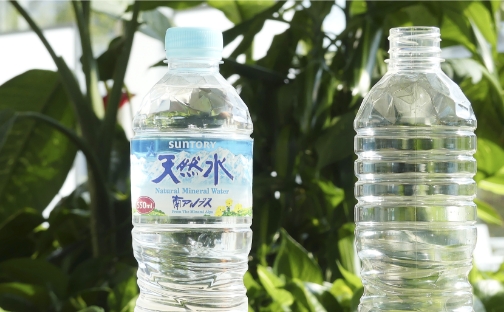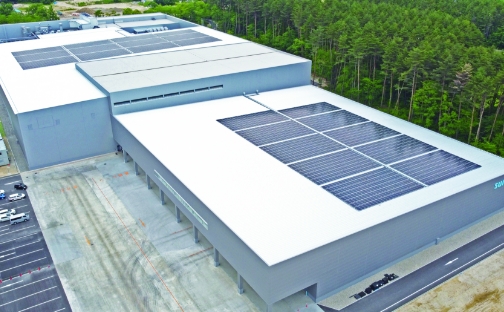Context
For Suntory Group, which operates globally, respecting the human rights of everyone involved in our business is a crucial responsibility and a foundation for sustainable growth.
Under the Suntory Group Human Rights Policy, we emphasize dialogue with stakeholders and strengthen our efforts to promote respect for human rights across the entire value chain.
In this Human Rights Policy, Suntory Group clearly states our commitment to upholding internationally recognized standards for human rights, including the United Nations’ International Bill of Human Rights and Guiding Principles on Business and Human Rights, as well as various labor standards (including the International Labour Organization’s core labor standards: freedom of association and the right to bargain collectively, abolition of forced and child labor, and elimination of discrimination in employment).
Governance
The Suntory Group Human Rights Policy establishes a clear governance structure to ensure implementation of our human rights initiatives.
Our Human Rights Policy is developed and revised with the approval of our Board of Directors, which also supervises the reporting and oversight of all important matters relating to human rights.
At the management level, our Chief Sustainability Officer takes Group-wide responsibility for ensuring respect for human rights and we guarantee commitment to these issues from our top management through measures such as incorporating progress on human rights initiatives and similar metrics into evaluations for executive compensation.
To deal with more practical aspects, we have established a multidisciplinary Human Rights Working Team that brings together functional divisions such as our sustainability, supply chain, human resources, legal, and compliance divisions, as well as major operating companies, to formulate strategies and monitor policy progress on a regular monthly basis. This Team relays its activities to the Global Sustainability Committee, and reports to and engages in discussion with the Board of Directors as necessary.
In addition, human rights issues have also been integrated into our Group-wide risk management process, and our Global Sustainability Committee collaborates with our Global Risk Management Committee to discuss actions to be taken, positioning human rights risks as one of the top priorities. In Japan, we have operated Human Rights Education Promotion Committees at individual business site level, and continue to promote human rights awareness and take action on any issues on a regional basis.
Strategy and Risk Management
Suntory Group carries out human rights due diligence (HRDD) at a global level. In the Suntory Group Human Rights Policy, we identified significant human rights risk areas within our operations, such as child labor, forced labor, long working hours, fair wages and benefits, discrimination and harassment, freedom of association and the right to bargain collectively, access to remedy, and occupational safety and health. With a focus on these priority themes, we carry out regular human rights risk assessments for both within our operations and throughout our value chain. During these assessments, we leverage dialogues with external human rights experts and NGOs, information from United Nations and industry body reports, and global risk data (for example, Verisk Maplecroft indices) to identify and prioritize potential risks.
Particularly within the supply chain, we emphasize the risks of child and forced labor at raw material procurement sites, using platforms such as use the Sedex platform and SMETA auditing to monitor the working environments provided by our business partners. Our HRDD process encompasses not only risk identification and evaluatiion, but also incorporates a PDCA cycle that includes preventative and corrective measures. If any negative human rights impact from Suntory Group's business activities becomes evident,, we promptly implement corrective action to rectify the situation and offer remedy to those affected. These initiatives are integrated with our global operational risk management and are ireflected in our strategy through regular reporting and reviews.
Human Rights Due Diligence
Suntory Group has identified key themes for global human rights, including forced labor and human trafficking, child labor and dangerous or hazardous work for young workers, discrimination, and foreign and migrant workers’ rights, and promotes human rights due diligence in line with the United Nations Guiding Principles on Business and Human Rights (UNGPs).
This process is led principally by our Human Rights Working Team, which consists of members from functional divisions such as our sustainability, supply chain, human resources, legal, and compliance divisions. This Team regularly formulates strategies and monitors progress on various actions, reporting its activities to the Global Sustainability Committee and additionally to the Board of Directors when necessary.
Within our human rights due diligence process, we give particular consideration to the human rights of women, children, migrant workers, and other vulnerable groups. Our efforts take into account the United Nations Women's Empowerment Principles, the same organization’s Children's Rights and Business Principles, and similar frameworks.
Identifying, Evaluating, Preventing, and Rectifying Adverse Impacts
Specifically, we identify and assess human rights risks within our own operations and across our supply chains on an ongoing basis, allowing us to take preventative and mitigatory measures. We regularly engage in dialogue with external experts and international NGOs, and incorporate the latest developments in global human rights risks into our strategies.
We utilize international risk data (such as indicators from Verisk Maplecroft) and Sedex's Self-Assessment Questionnaires (SAQ) and third-party audit information (SMETA) to evaluate potential human rights risks at approximately 90 of our production sites and key raw material procurement locations. Based on these assessments, we prioritize high- risk countries, regions, and materials for detailed investigations (impact assessments) and corrective support.
For issues found in the course of our ongoing monitoring, we engage in dialogues with our business partners, while coordinating with external expert bodies and NPOs to introduce measures for improvement.
Education and Training
Internally, we conduct training and ensure awareness of our Human Rights Policy among our employees, including executives. We also request that our business partners respect human right by providing guidelines and incorporating relevant clauses into contracts.
Grievance Mechanism
At Suntory Group, if any negative human rights impacts stemming from our business activities are identified, we are committed to engaging in prompt corrective action through appropriate procedures that follow international standards. To this end, we have established several contact points for consultation and reporting both within and outside the Group, and a system for responding to any grievances or reports of harm. We ensure the protection of the privacy of any persons making a report and prohibit retaliation at all touchpoints, while relevant departments collaborate to resolve issues.
Internal Grievance System
We have set up a Compliance Hotline (internal reporting system) for employees both in Japan and overseas, which can be used for consultations or reporting on any issue, including those relating to human rights. In Japan, Hotline contact points include a third-party law firm, while overseas, we have established a shared global contact point with 24-hour reporting in a range of languages (including Japanese, English, Chinese, and Spanish). To ensure that anyone making a report suffers no detrimental treatment as a result, our employment regulations stipulate a prohibition on any retaliatory behavior, and we follow up with those who submit reports afterward to ensure that they are fully protected. In 2024, the Group primarily related to labor, personnel, and management issues, with no reports related to child labor or forced labor. In all cases, including where these reports involve human rights issues, we engage in appropriate investigations and corrective actions.
External Grievance System
We have set up contact points for receiving human rights-related grievances from external stakeholders, including business partners and local communities. Our business partners—including our primary suppliers—and individuals from our local communities can currently make reports to our Customer Center or our Business Partner Compliance Hotline (in either Japanese or English). Reports are then handled by the appropriate internal department, according to the content.
We expect business partners to also establish similar grievance mechanisms within their own organizations and implement anti-retaliation measures, striving to ensure human rights are upheld throughout the supply chain. Further, in 2023, we joined the Japan Platform for Migrant Workers towards Responsible and Inclusive Society (JP-MIRAI), to enhance access to remedy for our migrant workers, including technical intern trainees. JP-MIRAI is operated by an independent NPO and provides an anonymous consultation service with 9 supported languages so that migrant workers can use the service in their native languages. Suntory Group has a system in place to swiftly conduct risk analysis and take corrective action upon receiving consultation reports from the service.
Toward Corrective Action
Suntory Group engages in the appropriate investigations and corrective actions regarding any human rights issues brought to our attention through our internal or external grievance mechanisms, and provides feedback to those who reported the issue and all affected by it. We monitor the progress of corrective actions until their completion and apply a rigorous process for progressing onto measures that will prevent recurrence. For example, since 2019, we have confirmed the completion of corrective actions for 502 out of 544 major issues regarding w identified in audits of our suppliers. We continue to work with business partners to address the remaining issues.
As outlined above, Suntory Group has established due diligence and remedy processes based on our Human Rights Policy in accordance with international standards. We are advancing responsible initiatives to meet the expectations of our l stakeholders.
For more information on this subject, see Respect for Human Rights








